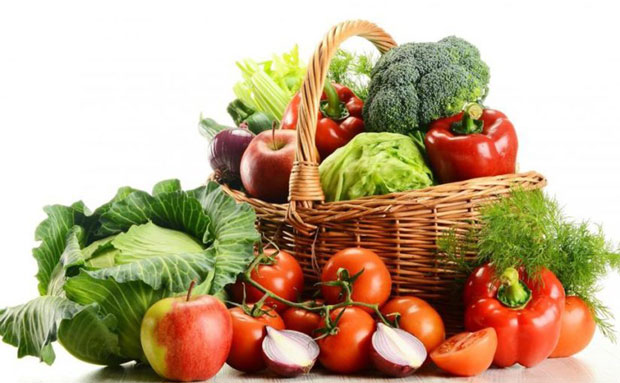20 Oct 2017 - {{hitsCtrl.values.hits}}

 Proteins are an essential component of a balanced diet. Proteins play a vital role in maintaining a healthy life. Dr. Kosala Karunaratna, Consultant Paediatrician of the Lady Ridgeway Hospital, Colombo, in this issue of ‘Health Capsule’ discusses the significance of proteins with regard to our health.
Proteins are an essential component of a balanced diet. Proteins play a vital role in maintaining a healthy life. Dr. Kosala Karunaratna, Consultant Paediatrician of the Lady Ridgeway Hospital, Colombo, in this issue of ‘Health Capsule’ discusses the significance of proteins with regard to our health.
Major food nutrients
“Proteins are major food nutrients that form an essential part of a balanced diet,” stated Dr. Karunaratna. Proteins are large bio-molecules. They comprise one or more chains of small units. These small units are the building blocks of proteins. These units are known as amino acids.
Importance
“Proteins are essential for the growth of the body. They help in the repair of body cells and tissues. Proteins are essential for the synthesis of enzymes, hormones, plasma proteins and antibodies,” explained Dr. Karunaratna. Carbohydrates are generally considered as energy providers. Proteins provide energy in the absence of carbohydrate in the diet. When proteins are consumed in excess, they are subjected to a process known as deamination. This occurs in the liver. Products of this reaction can be utilized to yield energy. The excess of proteins can also be used to synthesize fats.

Proteins play structural roles in our body. For instance our hair and nails comprise a protein known as keratin. Collagen is a protein which is an essential component of muscles, bones, skin, blood vessels of our body. Dr. Karunaratna stated that our DNA also consists of proteins. Haemoglobin found in our red blood cells is again a protein which helps the transportation of oxygen and carbondioxide throughout our body. Antibodies, also known as immunoglobulins, are proteins too. Enzymes and hormones in our body consists of proteins as well. Insulin is one such example for a protein hormone.
(Proteins may not always be a good thing. Venom of poisonous snakes are a type of protein too!)
Classification
Proteins aren’t merely obtained from the diet. Since proteins are a very important component in most parts of the body with various functions, they are synthesized within the body too. 20 different amino acids are needed by the body for the synthesis of proteins. Some amino acids are synthesized by the body. They are known as non-essential amino acids.These are synthesized by the liver. Some amino acids cant be synthesized by the body. These should be taken with the diet. They are known as essential amino acids.
Based on the amino acid content, proteins can be classified as first class proteins and second class proteins. First class proteins are protein foods that contain all the essential amino acids in the right proportions to maintain a healthy body. “First class proteins are mostly obtained from animal based sources. This includes animal liver, kidney, fish, meat, eggs and milk. Soy beans provide proteins as well. Eggs contain the highest quality of protein,” the paediatrician said.
The protein foods which do not contain all the essential amino acids in the right proportions are known as second class proteins. They are obtained from plant sources. “This includes legumes and lentils. Peas, beans, green gram and dhal are also among the list,” notified Dr. Karunaratna.
As most first class proteins come from animal sources of food, vegetarians have to make sure that they include a variety of proteins to fulfill their amino acid requirements.
Deficiency
The Dietary Reference Intake (DRI) for protein is 0.8 g per kg of body weight. This calls for around a daily protein intake of 56g for men and 46g for women on average. “When adequate amounts of protein aren’t obtained, health issues may arise. The most common deficiency issue is malnutrition,” warned Dr. Karunaratna. Kwashiorkor is a severe type of malnutrition caused by lack of protein. Marusmus is another complication that arises due to lack of calories.
Overload
While protein deficiencies can create medical complications such as malnutrition, substantially excessive amounts of protein could have adverse effects on health as well. As it was previously mentioned, when proteins are consumed in excess, they are broken down by the liver to produce energy. Though not common, when proteins are consumed in abnormally high amounts, several issues may arise. They could create or aggravate disease conditions. These include heart problems, diabetes, osteoporosis, reduced kidney function, kidney stones and constipation. A high protein intake may even result in a cancers.
“If a patient suffers from liver failure and problems associated with this organ, their bodies may find it hard to breakdown protein. This could lead to health issues too due to the accumulation of proteins,” expressed Dr. Karunaratna.
23 Dec 2024 2 hours ago
23 Dec 2024 3 hours ago
23 Dec 2024 3 hours ago
23 Dec 2024 3 hours ago
23 Dec 2024 5 hours ago